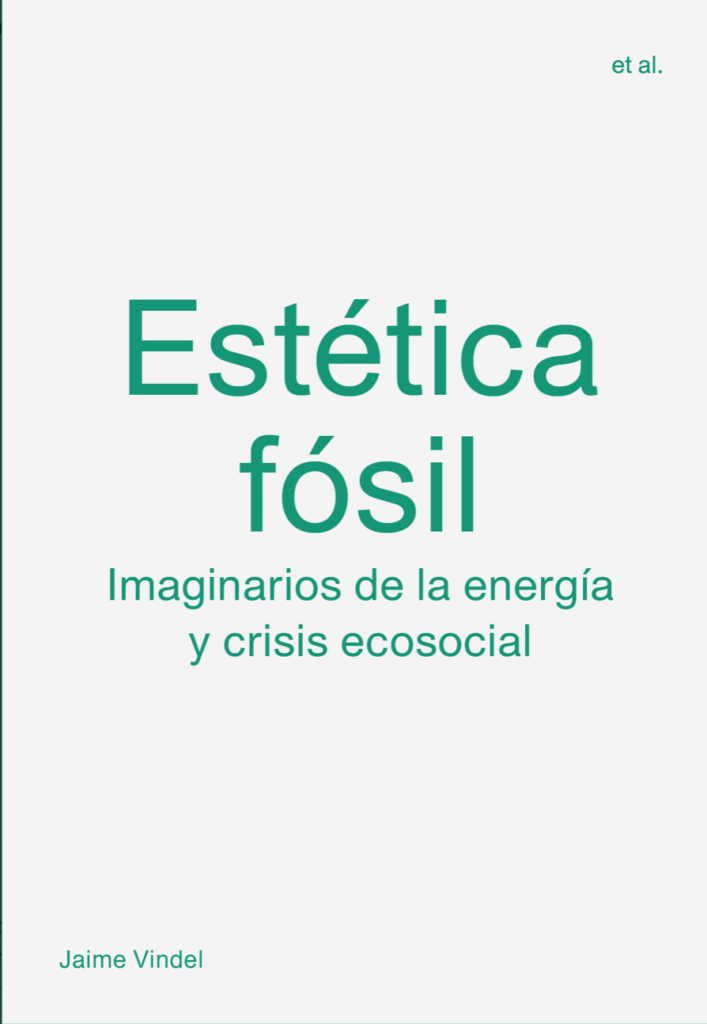Release of the book Estética fósil. Imaginarios de la energía y crisis ecosocial by Jaime Vindel
The book explains how the recourse to fossil fuels as the primary energy source of the Industrial Revolution and the irruption of thermodynamic physics in the mid-19th century were accompanied by a series of cultural imaginaries that instituted a productivist worldview of the relationship between humanity and nature. The energy exuberance provided by the synthesis of coal and thermodynamic machines was supposed to guarantee the increase of social wealth, obviating the repercussions of the new industrial capitalism on the bodies of workers and the earth’s ecosystems as a whole. The “fossil aesthetics” that gives the essay its title refers to the fact that the impact of this worldview is not only related to a series of ideological discourses, but has become sensitively inscribed in our experience of reality.
The different chapters describe how the imaginaries of energy have had an impact over the last two centuries on various scientific disciplines and cultural practices, and critically address their relevance in the context of neoliberalism and the ongoing ecosocial crisis.
This study is the starting point for the research project Fossil aesthetics: a political ecology of art history, visual culture and the cultural imaginaries of modernity (PIE 202010E005) which is part of the Decentralized Modernities platform.
Image: William Turner, Rain, Steam, and Speed – The Great Western Railway, 1844. National Gallery, London.
Estética fósil. Imaginarios de la energía y crisis ecosocial
Jaime Vindel
Barcelona: Arcadia, 2020
ISBN 978-84-121215-9-9
Download the index.

